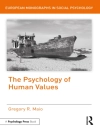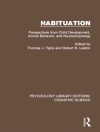Now revised and expanded with the latest research and adaptations for additional target behaviors, this is the gold-standard guide to Check-In, Check-Out (CICO), the most widely implemented Tier 2 behavior intervention. CICO is designed for the approximately 10–15% of students who fail to meet schoolwide behavioral expectations but who do not require intensive, individualized supports. In a large-size format for easy photocopying, the book includes step-by-step procedures and reproducible tools for planning and implementation. At the companion website, purchasers can download and print the reproducible tools and can access online-only training materials, sample daily progress reports, and an Excel database for managing daily data. (Second edition subtitle:
The Behavior Education Program.)
New to This Edition
*Chapters on CICO in alternative educational settings and for students with internalizing behavior problems.
*Content on using CICO for attendance issues, academic and organizational skills, and recess behavior problems.
*Chapter on layering additional targeted interventions onto CICO.
*Chapter with specific recommendations for training and coaching school teams.
*Expanded chapters on frequently asked questions, implementation in high school, and culturally responsive practices.
*Supplemental online-only training and data management tools.
*Updated throughout with current data and evidence-based procedures.
See also Dr. Hawken’s downloadable training video,
Check-In, Check-Out, Second Edition: A Tier 2 Intervention for Students at Risk. Also available: the authors’ work on intensive interventions for severe problem behavior,
Building Positive Behavior Support Systems in Schools, Second Edition: Functional Behavioral Assessment.
This book is in The Guilford Practical Intervention in the Schools Series, edited by Sandra M. Chafouleas.
表中的内容
1. Introduction to Check-In, Check-Out
2. The Context for PBIS in Schools
3. Basic CICO: Critical Features and Processes
4. Getting a CICO Intervention Started
5. Roles, Responsibilities, and Training Needs Related to Implementing CICO, Deanne A. Crone, Leanne S. Hawken, & K. Sandra Mac Leod
6. Designing CICO to Fit Your School
7. Selecting Fidelity and Outcome Data Systems to Guide CICO Decision Making, Robert H. Horner, K. Brigid Flannery, Angus Kittelman, Mimi Mc Grath Kato, & Leanne S. Hawken
8. Adaptations to Basic CICO
9. Layering More Intensive Interventions onto Basic CICO, Leanne S. Hawken, Kimberli Breen, Kaitlin Bundock, & Deanne A. Crone
10. Considerations for Caregiver Partnership and Culturally Responsive CICO, Sara C. Mc Daniel & Allison Leigh Bruhn
11. CICO in High School Settings, Kaitlin Bundock & K. Brigid Flannery
12. CICO for Students with Internalizing Behavior Problems, Kristin Kladis, Kristen Stokes, & Breda O’Keeffe
13. CICO in Alternative Educational Settings, Nicole Swoszowski, Robin Ennis, & Kristine Jolivette
14. Training Schools on CICO Implementation: A Guide for Coaches/Trainers
15. Frequently Asked Questions and Troubleshooting CICO Implementation
Appendices
A.1 List of Abbreviations and Definitions
B.1 Working Smarter, Not Harder Matrix
B.2 Request for Assistance Form
B.3 Parental Permission Form
B.4 Daily Progress Report—Middle School, Example 1
B.5 Daily Progress Report—Middle School, Example 2
B.6 Thumbs-Up! Ticket
B.7 Daily Progress Report—Elementary School, Example 1
B.8 Daily Progress Report—Elementary School, Example 2
C.1 CICO Implementation Readiness Questionnaire
C.2 Voting Form for Implementing the CICO Intervention
C.3 CICO Development and Implementation Guide
D.1 CICO Form—Elementary School
D.2 CICO Form—Middle/High School
E.1 Reinforcer Checklist
F.1 CICO Fidelity of Implementation Measure
G.1 Functional Assessment Checklist for Teachers and Staff
References
Index
关于作者
Leanne S. Hawken, Ph D, BCBA, is Professor Emeritus in the Department of Special Education at the University of Utah. Dr. Hawken has 30 years of experience in the fields of psychology, education, positive behavior support (PBIS), and applied behavior analysis (ABA). She has been a PBIS/MTSS district- and school-level coach and has been has been training, coaching, and conducting research on Check-In, Check-Out (CICO) since the early 2000s. Outside the school context, Dr. Hawken is a certified life coach who is passionate about combining the science of ABA with the tactics of life coaching.
Deanne A. Crone, Ph D, is a Research Associate at the Center on Teaching and Learning at the University of Oregon. She has directed several research and training grants addressing behavior disorders, positive behavior support, and functional behavioral assessment. Dr. Crone has conducted extensive training in functional behavioral assessment and positive behavior support with teachers, paraprofessionals, principals, and directors of special education.
Kaitlin Bundock, Ph D, is Assistant Professor of Special Education and Rehabilitation at Utah State University. A former teacher of special education high school mathematics, Dr. Bundock’s research and teaching focus on effective instruction and intervention for students struggling in mathematics at the secondary level. Dr. Bundock also focuses on behavioral interventions and supports in secondary schools. She has provided school and district teams with training in the Check-In, Check-Out (CICO) intervention, and has assisted with implementing CICO in elementary and middle schools.
Robert H. Horner, Ph D, is Emeritus Professor of Special Education at the University of Oregon. His research has focused on applied behavior analysis, positive behavior support, multi-tiered instructional systems, equity in education, and systems change. Since the 1990s, Dr. Horner has worked with George Sugai to develop and implement schoolwide positive behavioral interventions and supports (PBIS). He is a recipient of the Education Award from the American Association for Mental Retardation, the Public Service in Behavior Analysis Award from the Society for the Advancement of Behavior Analysis, the Fred S. Keller Behavioral Education Award from Division 25 of the American Psychological Association, and the Distinguished Researcher Award from the Special and Inclusive Education Research Special Interest Group of the American Educational Research Association.












